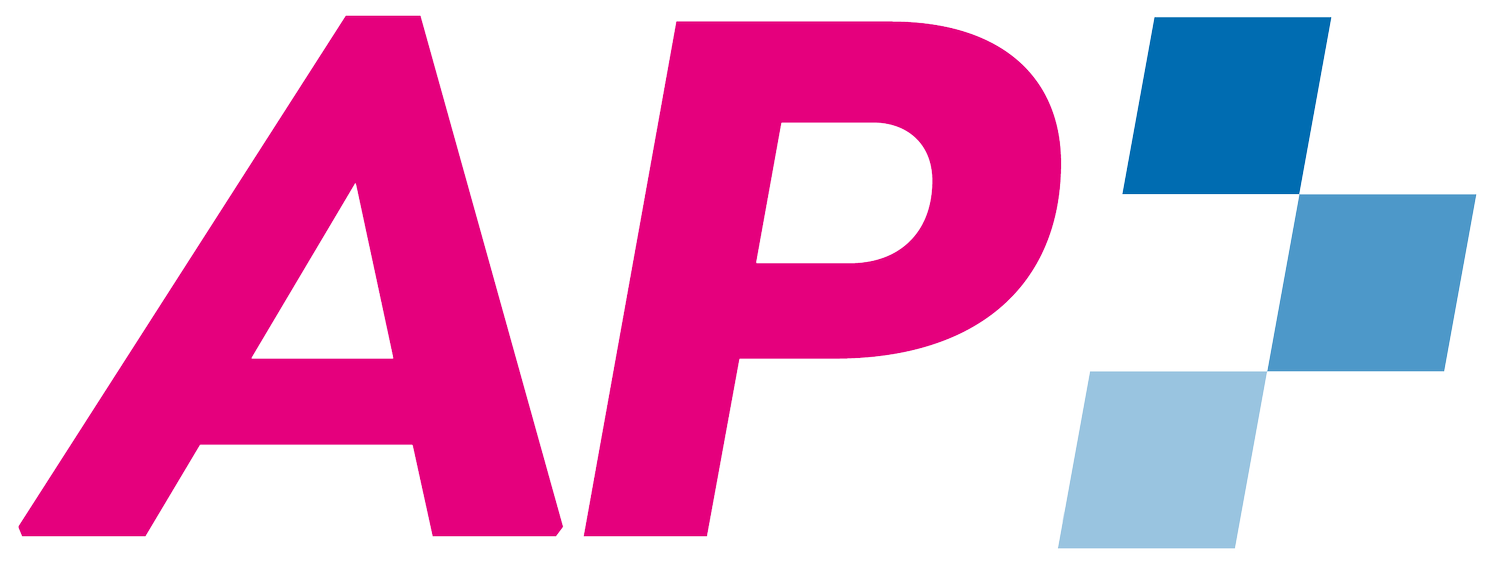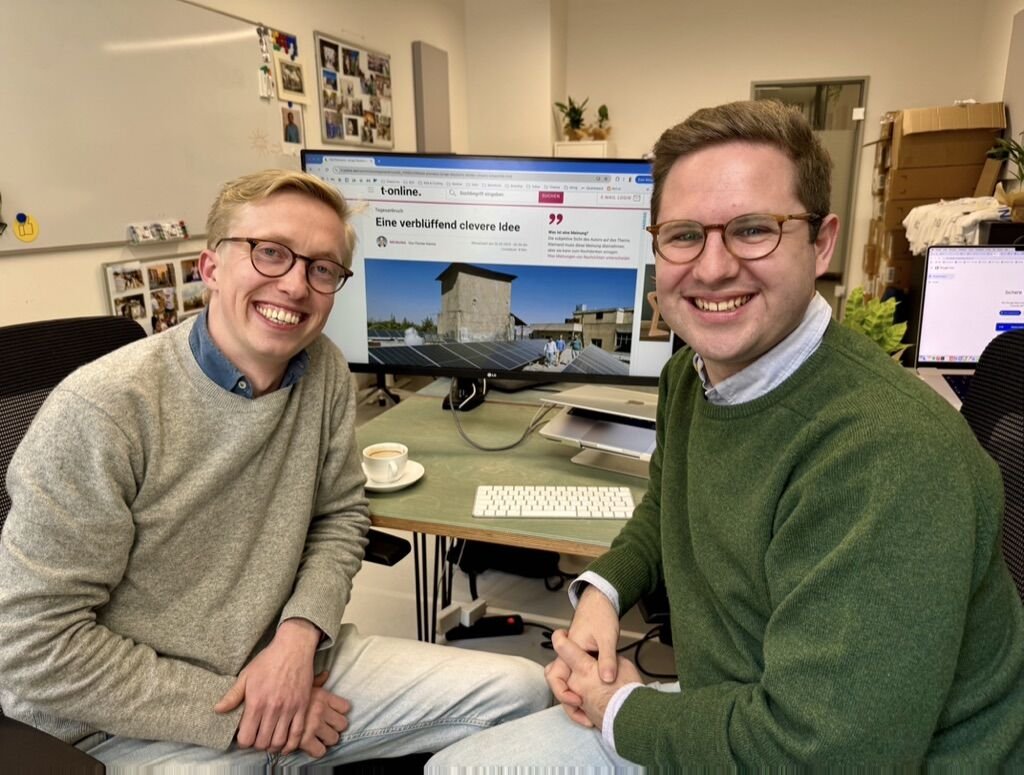Fast Aid, Real Impact: What the Media is saying about Aid Pioneers
…and why it’s sparking a bigger conversation about how humanitarian aid should work.
Aid Pioneers’ Co-Founders in the Berlin Office (Left: Alexis Broschek, Right: Julian Adler)
“Sometimes all it takes is a clever idea, a few contacts, and dedicated people to make the world a little better.” — Florian Harms, t-online (Tagesanbruch Podcast)
For many, the non-profit sector is associated with inefficiency, bureaucracy, and inertia. While that perception isn’t entirely fair, it isn't wrong either. As global crises intensify and global institutions withdraw from crisis zones, the need for bold, adaptive models of humanitarian response has never been more urgent. Innovation is no longer something we can afford to neglect in this sector - it’s a necessity.
That’s exactly what we explored in two recent conversations with leading voices in media and communications. This March, Aid Pioneers was featured in two major interviews that dove into the challenges and opportunities facing the nonprofit world, and how we’re choosing to respond:
“An astonishingly clever idea”: An in-depth conversation with Florian Dr. Harms, Editor-in-Chief of t-online, focused on how the nonprofit sector must adapt to global shifts - from Syria to Ukraine to the U.S.
“Together for sustainable change”: A reflective dialogue with Marc Sausen, SVP Corporate Communications at Ströer SE & Co. KGaA, exploring our shared track record and unconventional model of partnership-driven aid.
What they noticed
Across both features, one theme stood out: Aid Pioneers is doing things differently and that difference is deliberate. From our lean operations to our partnership-first model, both interviews highlighted how we're reimagining what effective humanitarian work can look like.
“Aid Pioneers’ goal: Creating a world in which the, oftentimes bureaucratic, NGO-operations are more efficient and impactful.” — Marc Sausen, Ströer (Podcast)
“I don't know of a single comparable organization that tackles problems in a similar way and takes such a pragmatic approach.” — Marc Sausen, Ströer (Podcast)
“Sometimes, it’s not about building something new—it’s about unlocking what’s already there.” — Florian Harms, t-online (Tagesanbruch Podcast)
What makes Aid Pioneers different
We’re not just connecting the dots, we’re closing the gaps that have long made humanitarian aid slow, costly, and at times disconnected from real needs.
At the heart of our model is a smarter way to deliver impact:
Driven by needs, not assumptions: We deliver medical supplies based solely on what healthcare institutions explicitly tell us they need - no guessing, no waste. The same principle guides our solar work: instead of one-size-fits-all systems, we carry out detailed energy assessments and co-design solutions with local stakeholders to match the unique demands of each facility. Whether medical or solar, every delivery is intentional and built for real-world impact.
Cost-Efficiency through strategic Partnerships: By collaborating with companies offering donated or discounted medical and solar equipment, we are able to dramatically increase the value of every euro spent.
Transparent and Traceable: Every donor is able to track their supported shipment. Every solar panel we install is monitored. Every item has a user journey - from warehouse to recipient. That’s impact you can see.
We handle logistics, compliance, and coordination so our partners - local or corporate - can focus on what they do best. In short: we’re not reinventing humanitarian aid. We’re making it work smarter.
"We delivered €500,000 worth of medical goods for just €20,000. We installed solar systems at 70% below retail prices. That’s what operational efficiency looks like." — Alexis Broschek, Co-Founder of Aid Pioneers
Listen In: Why our model is getting noticed
In our conversations with Florian Harms and Marc Sausen, the focus wasn’t just on how we work, it was about why this shift in aid is necessary. From climate disasters to conflict zones, global needs are evolving fast. Aid systems must evolve with them.
Here’s where you can dive in:
Ströer Podcast
Hosted by Ströer and introduced by Marc Sausen, this podcast episode dives into how Aid Pioneers got started, what drives our approach, and how we tackle inefficiencies that still slow down traditional aid. From navigating red tape to empowering local partners, the episode highlights what makes our model different.
Listen to the Ströer podcast episode with Marc Sausen
T-online Article & Podcast
The feature with Florian Harms on t-online is about how nonprofits must adapt to global change - and it showcases Aid Pioneers as one model of agile, partnership-based aid. The conversation is available as both a Tagesanbruch podcast episode and a written article by Editor-in-Chief Florian Harms.
Read the article/ listen to the podcast with Florian Harms
Let’s keep this going!
We don’t claim to have all the answers. But we believe in a smarter, more transparent approach to aid - led by local needs, powered by global partnerships and open for anyone to contribute.
If that resonates with you, here are three ways to get involved:
Donate: We make sure your contribution delivers maximum impact where it’s needed most.
Partner With Us: Are you a company with logistics, solar tech, or surplus medical goods? We’ll handle everything - from compliance to last-mile delivery.
Share the Story: Help us change the narrative around humanitarian aid. Whether it’s a blog post, LinkedIn shoutout, or press intro - your voice matters.
“The credit belongs to our partners on the ground. We’re just here to help open doors and connect the dots.” — Alexis Broschek, Co-Founder of Aid Pioneers


